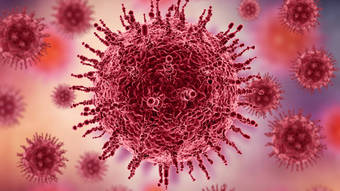Have you ever heard the expression “the gut is considered our second brain”? Without exaggeration, the connection between these two parts of the human body happens and is essential for maintaining our health.
The doctor of the Department of Gastroenterology of the Hospital das Clínicas of the Faculty of Medicine of the USP (University of São Paulo), Ricardo Barbuti, explains that “both organs, both the brain and the intestine, have a common embryological origin, they are born from the same cell, so they end up sharing a very intimate communication’.
This connection can be via nerves or blood, for example. But what is certain is that if altered, it will cause changes in human health.
Weight loss
Estima Nutrição nutritionist, specialized in clinical sports nutrition and health surveillance, Edvânia Soares says that the intestine is responsible for the production of neurotransmitters (they carry information to the cells) and hormones that directly influence the well-being and weight of the individual.
“If you have intestinal irritation, you have a lot more bowel movements, so you automatically lose weight,” says the specialist.
Furthermore, the decrease in neurotransmitter production also affects how the person copes with less weight, since when these ‘are neither produced nor balanced, the person can feel worse’.
“This communication [entre cérebro e intestino] it is essential for controlling our hunger, our satiety, the production of various intestinal hormones, it directly interferes with our metabolism, it makes us eat more, eat less, gain weight, lose weight’, says Barbuti
lack of vitamin
It is in the intestines that our body absorbs various nutrients and fats, good and bad. Proteins are absorbed in the stomach, but also pass through the intestines.
‘Vitamins A, C, E, D, K, B-complex vitamins, some minerals, such as iron, calcium, magnesium, zinc, are absorbed in the small intestine. When you think about nutritional absorption, we have more disposition, more energy, more vitality, because it is nourishing your body,’ says Edvânia.
Reduced absorption can lead to nutrient deficiency. This occurs when the intestinal microvilli (absorption surfaces increase) have breaks that make it difficult to retain nutrients, as well as digestion and secretion of liquids, for example.
‘When the intestine is not, in a sense, healthy, we begin to lack nutrients, so it will generally have a nutritional deficit, that’s natural,’ warns the nutritionist
Anemia
For some people, anemia is associated with a poor diet. However, it is worth remembering that it is caused by several factors and is not a disease, but a symptom, a way for the human body to warn that it has a problem, for example, in the intestines.
“Gluten interferes with iron absorption, because gluten is an insolid portion of the grain, and when you take, say, a celiac patient and he ends up consuming a lot of gluten, it doesn’t absorb the nutrients,” informs Edvânia.
And he adds: ‘He starts not absorbing iron because he starts not giving that priority to absorption, so the person can, yes, I’m not just talking about a celiac, but a person who has intestinal irritation or is not completely absorbed, can lead to anemia
Anxiety
The nutritionist also explains that a large part of serotonin, 80% to 90%, is produced in the intestine. This is because intestinal health provides “a feeling of well-being, lightness and happiness”.
However, when there is any change, it can directly interfere with the mood of the individual. Depression is among the patterns that can develop, as well as anxiety.
‘When we have a cold, for example, the person also has a bad mood, irritability, nervousness and anxiety. Our intestine is an immunological barrier, it is a producer of a hormone of happiness, it will reduce the propensity for various diseases,’ explains Edvânia.
Barbui adds that both conditions occur because “what goes on in the gut directly interferes with our brain function.”
Parkinson’s disease
Ricardo Barbuti explains that humans experience a regimen known as eubiosis, which is defined as a state of health. When the combination of microorganisms in the intestine is altered, dysbiosis begins.
This instability brings negative repercussions on the intestinal level, and beyond. Barbuti says that ‘there are several works that show the direct relationship between what happens in the gut and neurological and psychiatric diseases, such as Parkinson’s disease’.
A study published in the journal iScience and conducted by Brazilian researchers has shown that the intestinal microbiota (microorganisms that inhabit the gastrointestinal tract) influences, for example, neurodevelopment.
The scientists found that there is a higher abundance of the Akkermansia muciniphila bacterium in faecal samples of Parkinson’s disease patients compared to the control group.
From this, they concluded that intestinal dysbiosis may lead to an increase in this bacterium, which contributes to the aggregation of a protein known to be related to Parkinson’s disease (αSyn), and which may subsequently migrate to the central nervous system – a possible means of the onset of sporadic Parkinson’s disease
When faced with conditions caused by intestinal alterations, it is essential to pay attention to the signs that something is wrong. The first symptoms, according to Edvânia, can be abdominal distension, white tongue, mood swings, bloating and fatigue.
In the case of babies, when they begin to rotate a lot in the cradle clockwise and sweat excessively, it is a symptom of food intolerance. Clockwise this is how the intestine works, so the child, by inertia, moves in the bed.
As for adults, those who sweat excessively at night, move a lot in bed and have mental confusion, such as forgetting some words, should investigate some food intolerances.
Finally, the nutritionist clarifies that the Bristol scale is a way to perceive if the shape of human feces is correct, because ‘when it starts to fragment and does not end with that dot, it is something you have to pay attention to. your intestines’.
It is always valid to give importance to the signs of this part of the body, since with ‘you are more nourished, your intestines work, you have much more health, well-being, longevity and happiness’.
* Intern at R7 under the supervision of Fernando Mellis


